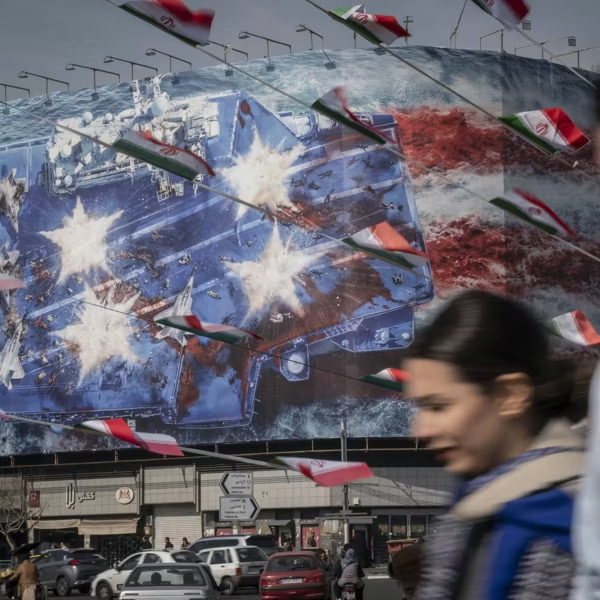Last week President Donald Trump surprised the world, and much of his own staff, by announcing plans to pull more than 2,000 US troops out of Syria. Then he said he would cut the number of US troops in Afghanistan in half.
In response, Secretary of Defense James "Mad Dog" Mattis and special envoy to Syria Brett McGurk resigned. Conservative Republicans denounced Trump. The foreign policy establishment in general went bonkers, claiming Trump was endangering national security.
Some liberals and progressives were confused. They want to see a withdrawal of troops from unjust wars but were concerned with Trump's impetuous and unilateral methods.
So let's set the record straight. The US never should have invaded Syria, Iraq or Afghanistan in the first place. The US is not bringing democracy to the region. It wages wars of occupation to further Washington's rapacious economic and geopolitical designs.
Yes, Trump failed to consult with allies, ignored his closest advisors, and left the Kurds in the lurch.
But have no illusions. Even if future President Bernie Sanders negotiated a phased troop withdrawal from the region, he would come under vicious attack by big business Democrats and Republicans. That's what President Barak Obama faced when he pulled US troops out of Iraq in 2011 even though he was implementing a legally binding agreement reached between President George W. Bush and the Iraqi government.
For the ruling elite in Washington, there's never a good time to end a war. They voluntarily pull out combat troops only with the installation of permanent, pro-US regimes, and that isn't about to happen in Syria or Afghanistan.
For the ruling elite in Washington, there's never a good time to end a war. They voluntarily pull out combat troops only with the installation of permanent, pro-US regimes, and that isn't about to happen in Syria or Afghanistan.
Trump's policy, however mangled, actually reflects a popular American consensus against the never-ending wars of aggression.
Monica Toft, a professor of international politics and director of the Center for Strategic Studies at Tufts University's Fletcher School, told me Trump is playing to his political base.
"People would like the troops to come home," she said. "But you don't do it in such a rash manner."
Will the US really pull out?
Pentagon officials, caught off guard by Trump's tweet on the Syria withdrawal, quickly announced contingency plans to continue the Syria war through other means. It may launch commando raids and missile strikes into Syria from bases in neighboring Iraq. Trump endorsed this policy during a surprise visit to Iraq on Dec. 26. So we'll have to see what the administration's policy will be in practice.
Winding down the 17-year-old Afghanistan war is even more complicated. Trump said he would cut the troops to 7,000, but that was only after he increased the troop strength to 15,000 in 2017. So, the announced withdrawal will leave only about 1,500 fewer troops than the 8500 stationed there when Trump took office.
I think the US lost the war in Afghanistan long ago. The country is ruled by corrupt, drug-dealing warlords. The Taliban controls much of the country outside the major cities, and can carry out armed assaults at will on the capital Kabul.
When the Obama administration surged100,000 troops into Afghanistan in 2009, it couldn't win the war. So 7,000 soldiers certainly can't. The only question is which US president will be in office when foreign troops are forced out. It remains to be seen if Trump will accept being blamed for "losing Afghanistan." In reality the country was never his to lose.
What happens to Rojava?
Trump's decision to pull troops from Syria apparently began with a phone call to Turkish President Recep Tayyip Erdogan on Dec. 14. Erdogan promised his troops would eliminate the remnants of the Islamic State that still hold territory along the Syrian-Iraqi border. But first he would wipe out the Syrian Democratic Forces (SDF), the Kurdish-led armed movement allied with the US fighting in northern Syria (Rojava).
Several days after the phone call, the Pentagon agreed to sell Patriot Missiles to Turkey in a $3.5 billion deal that profits US arms manufacturers.
Several days after the phone call, the Pentagon agreed to sell Patriot Missiles to Turkey in a $3.5 billion deal that profits US arms manufacturers.
Turkey characterizes the SDF and its allied political movements as separatists and terrorists affiliated with the Kurdistan Workers Party in Turkey. In reality the SDF calls for a decentralized federal state with autonomy for Rojava within a Syrian state.
Turkey has its own political agenda in Syria. It cobbled together an armed militia called the Free Syrian Army that consists of some 2,000 castoffs from various right-wing political Islamist groups. These Sunni groups are closer ideologically to the Islamic State than to any version of civil society.
So Erdogan is unlikely to pursue the Islamic State with the same vigor as his war on the Kurds. Turkey hopes to defeat the Kurds and use its control of northern Syria as a bargaining chip in negotiations with the government of President Bashar al Assad. Syria has a long-standing territorial dispute with Turkey and fears Erdogan will annex part of northern Syria.
Turkish control of Rojava would be a disaster, according to Brace Belden, a San Francisco resident who fought with the Kurdish forces. He was surprised by Trump's tweet.
He doesn't call for US troops to remain, however. "From the beginning I opposed an alliance with the US. The timing surprised me, but the betrayal was inevitable."
He said the US should pressure Turkey through diplomatic means not to invade Rojava. Instead of selling a new missile system to Turkey, Trump should cut off all arms sales if Turkey attacks Rojava, he said. The US also has a responsibility to provide money to rebuild areas of Syria flattened by US bombs.
The SDF faces a serious crisis but has a number of options. Their leaders traveled recently to Paris seeking support from the French government.
SDF leaders said they might have to release some 3,200 Islamic State prisoners and 2,080 of their family members now being held in SDF detention. It was a thinly veiled threat to Trump and the Europeans that they can't take the SDF for granted.
SDF leaders are also holding negotiations with the Assad government. Belden said they discussed relinquishing control of oil fields near Deir Ezzor, a part of Syria controlled by the SDF but not part of Rojava.
"There are some indications that the PYD [Democratic Union Party, the political leadership of the SDF] is dropping its demands for federalism because that's unacceptable to Assad," said Belden.
The SDF is also urging the Russians to prevent a Turkish attack. Deterring such an offensive would benefit both Russia and Syria, according to Prof. Toft.
"A Turkish attack would open another front in this war," she said. "Stopping a Turkish incursion is in Russia's interest as well."
Best Case/Worst Case Scenarios
Assuming the US actually pulls troops out of Syria, it will set off a complicated set of reactions. The SDF could reach an agreement with Russia and Assad that blocks a Turkish invasion and allows Syrian government troops back into northern Syria.
The worst-case scenario would be a Turkish occupation of Rojava and a continued splintering of the Syrian nation.
As for Afghanistan, the Trump administration could learn from its mistakes in Syria and plan a quick but phased withdrawal. As Rep. Ro Khanna (Dem-California) wrote, "There should be a short timeline for bringing home our troops to allow for a smooth transition. We should engage in direct talks with the Taliban and seek a negotiated settlement, involving regional actors such as Pakistan, Iran, Russia, China, and India."
Trump learning from his mistakes and acting diplomatically? Fat chance. But, hey, the US will have to withdraw from the region sooner or later. It may just start on Trump's watch.
The US empire is learning that the only thing harder than starting a war is ending it.




